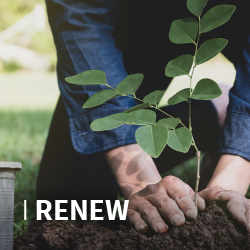As the first woman to hold national office at ISRI, and the association’s first female president, it made perfect sense for Shelley Padnos to be the first guest on ISRI Live, a new podcast series from ISRI’s Young Executives Council (YEC). During an all-encompassing conversation with ISRI young execs Sam Shine and Jacqueline Lotzkar, Padnos discussed her rise through the ranks at ISRI, the skills that have made her so successful, and the importance of being involved in her local community.
Laying the Groundwork for Success
The current Chairman of the Executive Committee of the Board for PADNOS in Holland, Mich., and recipient of ISRI’s 2021 Lifetime Achievement Award, Padnos’ leadership journey started at the chapter level. She served as the secretary/treasurer of the Michigan Chapter and as chair of the Legislative Committee. Eventually, she was recruited by ISRI’s first president, Howard Meyers, to join the Superfund Recycling Task Force—created to craft a path forward for ISRI to resolve issues related to the Superfund.
Superfund refers to the Comprehensive Environmental Response, Compensation, and Liability Act (CERCLA), which was enacted by Congress in 1980. The statute provides the federal government broad authority to cleanup uncontrolled, or abandoned, sites where “hazardous substances” are present and pose an imminent threat to human health or the environment. Superfund identifies four categories of “potentially responsible parties” (PRPs) that can be held to strict joint and several liability for the costs of responding to the release (or threatened release) of hazardous substances. Strict liability is absolute: It is imposed without regard to intent or negligence. Joint and several liability means that each and every PRP may be held individually liable for the entire cost of cleanup.
After six years of intense lobbying and grassroots activity by ISRI and its members, the Superfund Recycling Equity Act (SREA) was passed on Nov. 29, 1999, thanks in large part to Padnos and the task force. SREA corrects an unintended consequence of Superfund in which hundreds of millions of dollars of Superfund liability were imposed on the recycling industry. Padnos was also appointed by former EPA Administrator, Carol Browner, to the National Advisory Council on Environmental Policy and Technologies, Superfund Subcommittee, charged with making recommendations to the Clinton administration on the reauthorization of Superfund legislation.
Through her work with the task force, Padnos was identified as a potential candidate for national leadership by Meyers. The first position she ran for and won was Secretary. While Padnos had some reservations about running for a national position because she believed she lacked experience at the national level, she’s glad she did it. ISRI is better off for her time and dedication to the association. Padnos advises that young professionals interested in getting involved in leadership at their companies should take the initiative, and everything else will fall into place. “I’ve always told people who expressed interest in being a supervisor or manager to start by acting like one,” she says. “Behave not as if you had those powers, but as if you had those responsibilities. I’m a firm believer that when you take on responsibilities, everything else will follow. Start accepting more responsibilities and proving that you’re capable of handling them.”
Staying Prepared
Padnos credits much of her success to what she believes is her best attribute, her ability to conduct research. “I’m very good at finding things,” she says with a laugh. When young executives are preparing for meetings and respective commitments, simply reading over materials can go a long way in ensuring that they’re prepared. “Read everything that they send you before you get there,” Padnos recommends. “Just being prepared gives you the opportunity to think things through differently, and to form your opinions and your ideas in a calm and thoughtful way.”
Opening the Door for Women and Other Diverse Groups
Many times Padnos has been one of the few, if not only, women in a room of men. Though things have improved, she remains extremely passionate about creating a diverse and inclusive workforce and industry. PADNOS has conducted education and trainings with mid-and upper-level supervisors to understand the values of diversity, and to support diverse individuals at the company. The company has promoted several women to supervisory roles throughout the organization. Padnos says that when you bring in people from diverse backgrounds for leadership roles, it’s important to offer them continued support once they start work so they don’t feel alone or isolated. It takes a conscious effort to make a workforce more diverse, she adds, but it’s worth it. “Every time somebody succeeds who wasn’t expected to succeed, it changes the world’s perception of who people are and what they can do.”
Making the World a Better Place
In addition the recycling industry, Padnos has served on the boards of various organizations. Currently, she sits on the Board of Directors for the American Civil Liberties Union (ACLU) of Michigan. Founded in 1920, the ACLU is a nonprofit organization to defend and preserve the individual rights and liberties guaranteed to every person in this country by the Constitution and laws of the United States. Padnos feels it’s her responsibility to get involved with organizations in her local community.
“I don’t think that Jewish people have a lock on this, but I was raised to believe that we [Jewish people] have a responsibility to try to make the world a better place, and to help those that are less fortunate,” Padnos says. “Certainly that is a core value for our family, and, as a result, it ends up being a core value for our company.”
You can watch the full interview with Shelley Padnos here.
Additional Resources













